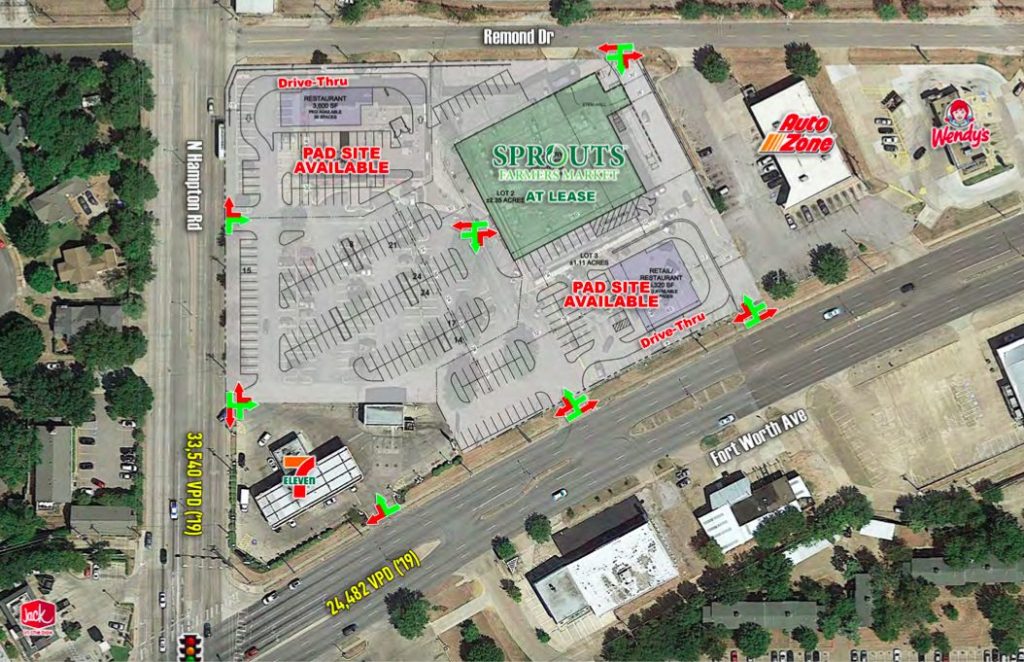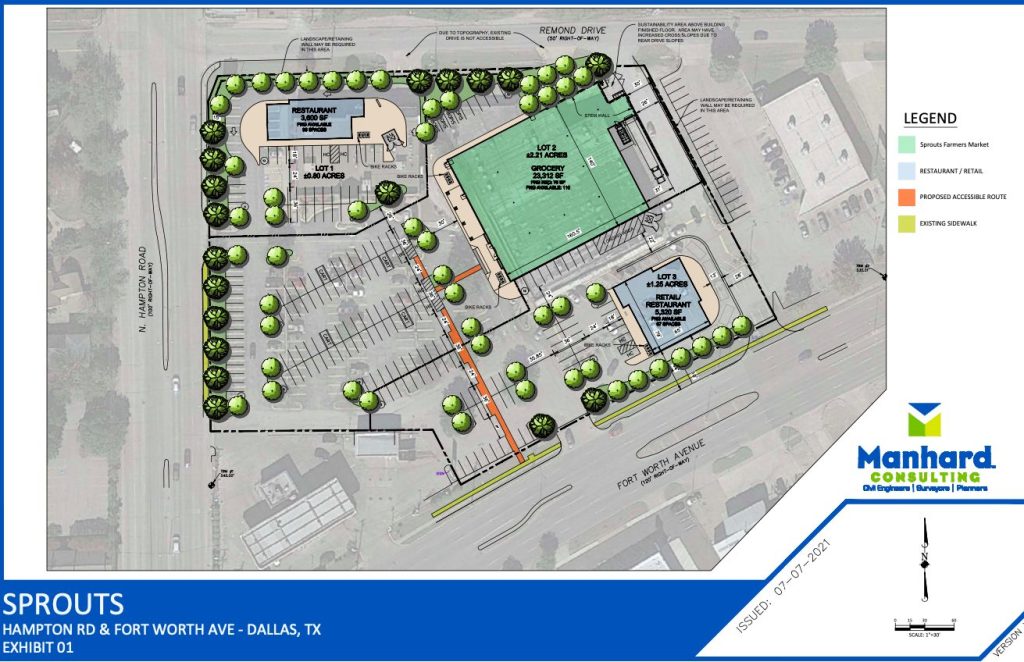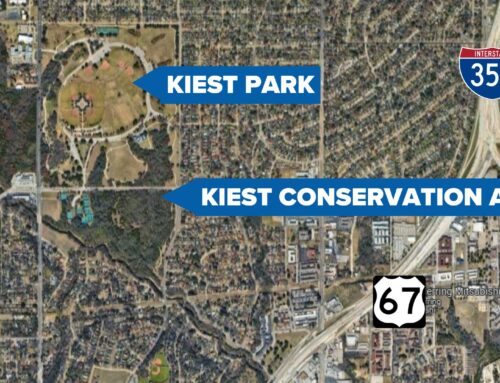Sprouts Farmers Market wants to build its “first new standalone prototype” in the Dallas area at Hampton Road and Fort Worth Avenue, but the plan hit roadblocks at City Hall recently.
Sprouts, which is seeking financial incentives from the city, entered a lease agreement with Vista Property Co. last year that is contingent upon zoning approval.
The Arizona-based grocer, which is currently making a big push in the Dallas/Fort Worth market, wants to demolish Elrod’s Cost Plus as well as the old Luby’s that is now a Chinese buffet. The 7-Eleven on the corner is not part of the development, nor is AutoZone.
The store would be built approximately where Elrod’s is now, but angled diagonally. A coffee shop with a drive-thru and a pet store already have signed leases for a retail pad planned on the Fort Worth Avenue side, which also would include a bike rack and outdoor seating. A second retail pad, at Hampton and Remond, hasn’t been leased yet but is planned as a restaurant and could have a drive-thru.
The Dallas City Plan Commission recently kicked the case to the city’s Urban Design Peer Review Panel at the developer’s request.
The company wants to create a new subdistrict within the existing Fort Worth Avenue/West Commerce zoning.
The standards for the district were adopted in 2005, and they aspire to walkability, urban form and lowered environmental impact.
The peer-review panel, which is composed of architects and engineers, said the plan doesn’t come close enough to meeting those ideals and set out recommendations for a better design.
Sprouts wants to eliminate two vehicle access points on Remond Avenue and add one entry/exit point for delivery trucks with a through lane to Fort Worth Avenue behind the store.
Narrower sidewalks, greater distances between curbs and building fronts, and an increase in the ratio that’s allowed between the heights of structures and nearby residences are among the differences requested.
Twelve-foot sidewalks are required on Fort Worth Avenue, and the retailer requests a width of 6 feet. The plan below shows pedestrian access points in orange, plus the plan for trees, parking and retail pads.
Panel member Jessie Marshall Zarazaga said the design is “a wasted opportunity” and that this doesn’t look like the plan for a forward-thinking prototype store.
“This looks like a very traditional suburban supermarket,” she said.
Among her critiques: The building faces onto a parking lot instead of the street. There is no plan for permeable parking lot materials, tree canopies or drainage plan. And it’s not designed for the safety of pedestrians walking around the development.
It ought to be designed for pedestrians and trees first, and instead the design prioritizes delivery trucks, she said.
“The client is not Sprouts,” she said. “The client is the people of Dallas who request a walkable environment.”
Two panel members, James Frye and Mark Meyer, offered sketches for how the retailer could build its store to face Fort Worth Avenue.
Vista’s vice president for development, Colton Wright, said their team has reviewed the site and existing zoning in-depth. The grade of the site and Sprouts’ development requirements make a design within the zoning unfeasible. But he said they would take the panel’s recommendations into consideration.
The retailer is working with the city’s economic development office in pursue of tax-increment financing or other incentives to built its store on this corner.
Find Vista’s presentation here, and watch the full meeting below.
The Dallas Urban Design Peer Review Panel made the following recommendations:
- Consider how stormwater is managed throughout the property and conduct a stormwater study of the current development.
- Increase the tree canopy and pervious surfaces throughout the site.
- Locate storefronts along Fort Worth Avenue “to create an active edge.”
- Consider making it a mixed-use development that would also include apartments or condos. [Although Vista is a retail developer and doesn’t do multifamily.]
- Widen sidewalks to a minimum of 10 feet and improve pedestrian safety and walkability throughout the development.
- Consider pedestrian enhancements on Remond.
- Create a landscape buffer between the sidewalk and Hampton Road.







